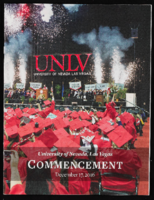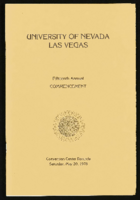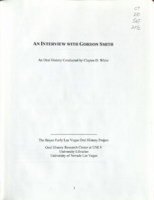Search the Special Collections and Archives Portal
Search Results

Transcript of interview with Frankie Perez by Elsa Lopez and Laurents Bañuelos-Benitez, November 5, 2018
Date
Archival Collection
Description
Frankie Perez (1986- ) is an individual that constantly found himself navigating two worlds, whether it was military versus civilian; female versus male; or being Latinx in the United States. As a result of this navigation, Perez has a unique perspective on our ever more complicated world that not many individuals possess. Perez served in the military during the Do Not Ask, Do Not Tell policy which made it difficult for someone dealing with gender identity, to seek out the proper support they need. Despite the policy, and other policies that were put in place afterwards to inhibit the transgender community in the military, Perez began his transition while still serving his country. In direct contradiction of popular opinion, Perez discovered that the military easily accommodated his transition. Outside of the military Perez is an active voice in the LGBTQ community. As a member of the LGBTQ, Latinx, and military community, Perez has a unique perspective that he uses to fight for both LGBTQ and Latinx rights. Currently, Perez is finishing his degree in gender and sexuality studies at UNLV. He hopes to use his education to help people have the difficult discussions and improve conditions for his communities.
Text

University of Nevada, Las Vegas (UNLV) Fall 2016 commencement program
Date
Archival Collection
Description
Commencement program from University of Nevada, Las Vegas Commencement Programs and Graduation Lists (UA-00115).
Text

University of Nevada, Las Vegas (UNLV) 15th commencement program
Date
Archival Collection
Description
Commencement program from University of Nevada, Las Vegas Commencement Programs and Graduation Lists (UA-00115).
Text
State of Nevada Educational Directories, Bulletins, and Certification Requirements
Identifier
Abstract
The State of Nevada Educational Directories, Bulletins, and Certification Requirements (1934-1991) contain bi-monthly bulletins, yearly directories, information to certify teachers, and retirement salaries.
Archival Collection

Transcript of interview with JoNell Thomas by Claytee White, January 12, 2010
Date
Archival Collection
Description
JoNell Thomas grew up in a large Utah family, went to Utah State and law school at University of Utah. She moved to Nevada in 1992; first as with the Nevada Supreme Court and then as a staff attorney with a Las Vegas firm, and currently is an attorney with the Clark County Special Public Defender's office. She and her husband, Billy Logan and their twin daughters have lived in the John S. Park Neighborhood since 2001. Their residence was constructed in 1956 on a large corner lot with lots of trees and a fifty-year-old swimming pool. JoNell offers her observations on a variety of JSP events: Stratosphere's failed rollercoaster across the Strip idea; the proposed high-rise complexes; the Monorail lack of convenience to locals; effects of dropping home prices and downturn of economy; the homeless population and closing of Circle Park. She helped create the early online community called the Downtown Neighbors website which provided information regarding , part activist, part pra
Text

Transcript of interview with Gordon Smith by Claytee White, January 29, 2013
Date
Archival Collection
Description
Gordon Smith was born in Utah, but moved with his family to Babbitt, Nevada in 1947. His father, a barber, moved the family to Las Vegas in 1955. In this interview, Gordon recalls school and after-school pursuits; changes in the town; summer jobs; and college. He also talks about his military service and returning to Las Vegas to take up the razor himself - starting a successful barbering business of over 30 years.
Text

Meeting minutes for Consolidated Student Senate, University of Nevada, Las Vegas, February 20, 1979
Date
Archival Collection
Description
Text

Meeting minutes for Consolidated Student Senate, University of Nevada, Las Vegas, March 23, 1976
Date
Archival Collection
Description
Text

Transcript of interview with Jeanne P. Chretien by Cynthia L. Reeves, February 26, 1979
Date
Archival Collection
Description
On February 26, 1979, Cynthia L. Reeves interviewed Jeanne P. Chretien (born 1923 in Marshalltown, Iowa) about her life in Southern Nevada. Chretien first talks about her move to Las Vegas and her beginning education, including how the educational system has changed over time. She also describes her first occupations, political activity, involvement in groups such as the Girl Scouts, and early recreational activities. The two later discuss Block 16, entertainment, the atomic testing, the effects of World War II, and flooding in Las Vegas. The latter part of the interview includes topics on Chretien’s religious activity, her enrollment into Nevada Southern University, and the changes in Las Vegas over time. The interview concludes with Chretien’s thoughts on rearing children in Las Vegas as well as how she believes the city will continue to grow in the future.
Text

Meeting minutes for Consolidated Student Senate University of Nevada, Las Vegas, June 20, 1994
Date
Archival Collection
Description
Text
